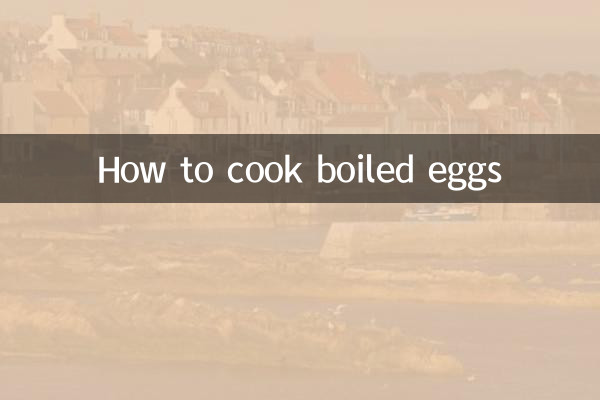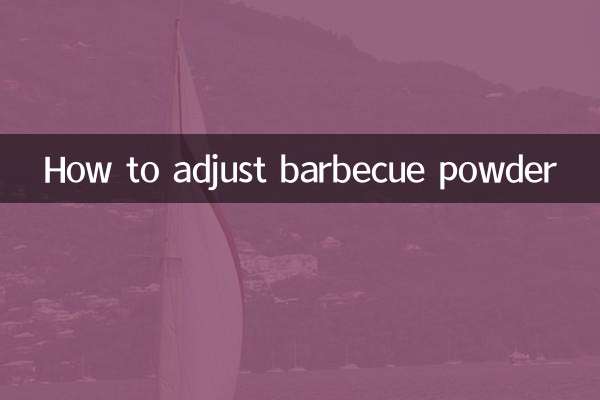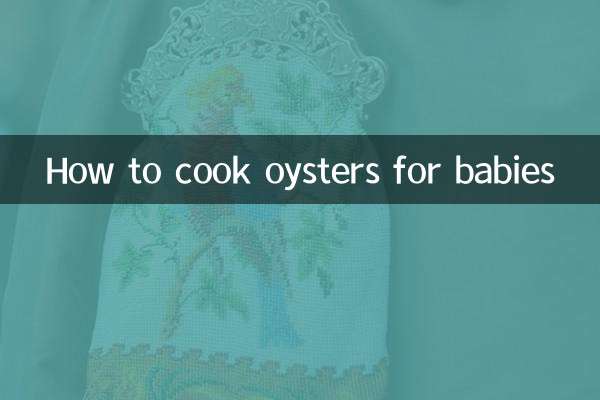How to cook boiled eggs
Poaching eggs may seem simple, but cooking perfect eggs requires some skills. Whether it is soft boiled eggs or springy tea eggs, the time and method of boiling eggs need to be adjusted according to different needs. This article will combine the hot topics and hot content on the Internet in the past 10 days to give you a detailed introduction to how to cook ideal eggs.
1. Basic steps for boiling eggs

1.Choose fresh eggs: Fresh eggs are easier to peel and taste better after being boiled. You can test the freshness of eggs by placing them in water. Eggs that sink to the bottom are fresher.
2.Pot under cold water: Put the eggs into the pot and add cold water. The amount of water should completely cover the eggs.
3.Control the heat: After boiling the water over high heat, turn to medium-low heat and continue cooking.
4.Timing: Control the cooking time according to the desired doneness (see table below for details).
5.cool down: Immediately after cooking, put the eggs in cold water to cool them for easier peeling.
2. Timetable for boiling eggs at different degrees of doneness
| doneness | Cooking time (after water boils) | Yolk state | protein status |
|---|---|---|---|
| Soft-boiled eggs | 4-5 minutes | flowing state | Basic solidification |
| soft boiled eggs | 6-7 minutes | semi-solidified | Completely solidified |
| Hard boiled eggs | 9-10 minutes | Completely solidified | Completely solidified |
| hard boiled eggs | more than 12 minutes | Completely solidified and hardened | Completely solidified and hardened |
3. Common problems and solutions for boiled eggs
1.Eggs crack easily: You can add a little salt or vinegar to the water to help the protein solidify quickly and block the cracks.
2.Difficulty peeling: Immediately after cooking, put it into ice water to cool down, and use the principle of thermal expansion and contraction to separate the eggshell and protein.
3.Egg yolk turns green: This is an iron sulfide reaction caused by too long cooking time, which can be avoided by controlling the cooking time.
4. Special method of boiling eggs
| method | Features | Applicable scenarios |
|---|---|---|
| Steamed egg method | Taste more tender and smooth | Making soft-boiled eggs |
| Stew method | Save energy | outdoor cooking |
| pressure cooker cooking method | shorter time | Quick cooking |
| Slow cooking method | The most tender taste | haute cuisine |
5. Nutritional value of eggs
Eggs are an excellent source of protein and rich in vitamins and minerals. The nutritional value of eggs of different degrees of maturity is slightly different:
| Nutrients | Soft-boiled eggs | Hard boiled eggs |
|---|---|---|
| protein | 6.3g | 6.3g |
| Vitamin B12 | 0.6μg | 0.5μg |
| Lutein | 252μg | 186μg |
| Biotin | 10μg | 5μg |
6. Popular egg cooking techniques on the Internet
According to the hot content on the Internet in the past 10 days, the following egg cooking techniques have attracted much attention:
1.Air chamber downward method: When boiling eggs, place the eggs with the air chamber facing down, which is said to center the yolk more.
2.Paperclip-assisted peeling method: Insert a paper clip into the big end of the egg and inject a small amount of air. It is said that the eggshell can be easily peeled off.
3.Shake and peel method: Place the hard-boiled eggs in a container with a small amount of water and shake to break the eggshells evenly.
4.The perfect soft-boiled egg method: After the water boils, cook for 6 minutes, turn off the heat and simmer for 1 minute, then immediately add ice water. It is said that you can get the perfect soothing effect.
7. Summary
Boiling eggs may seem simple, but in fact it contains a lot of knowledge. By mastering different cooking times and methods, you can easily make eggs that suit your taste. Whether it is soft-boiled eggs for breakfast, hard-boiled eggs in a lunch box, or tea eggs as a side dish, the cooking method needs to be adjusted according to specific needs. I hope the structured data and practical tips provided in this article will help you cook the perfect egg.

check the details

check the details